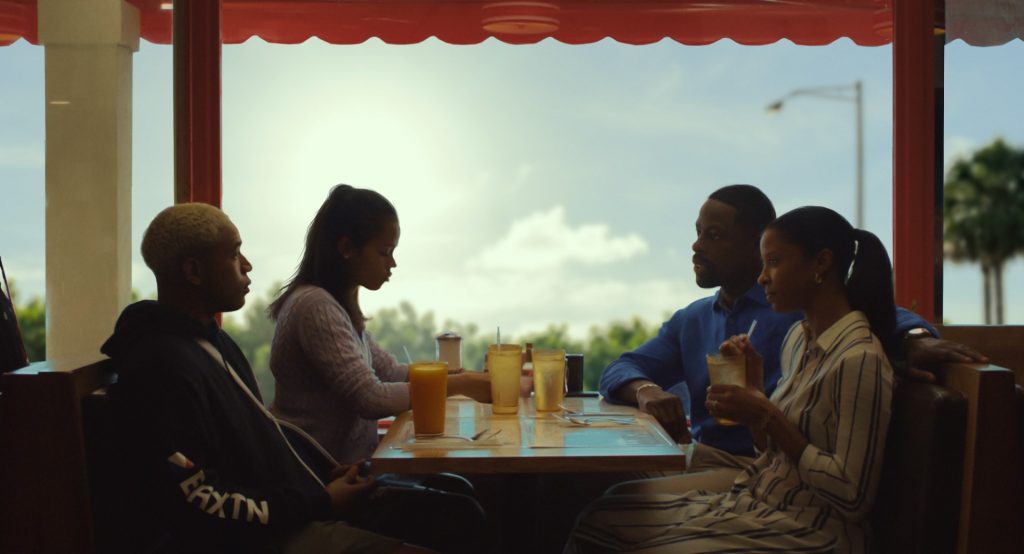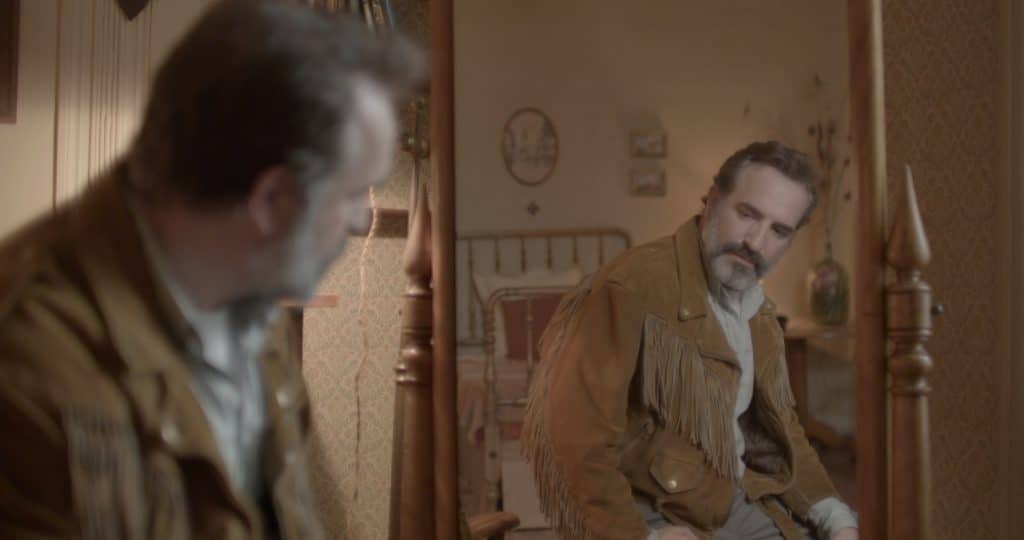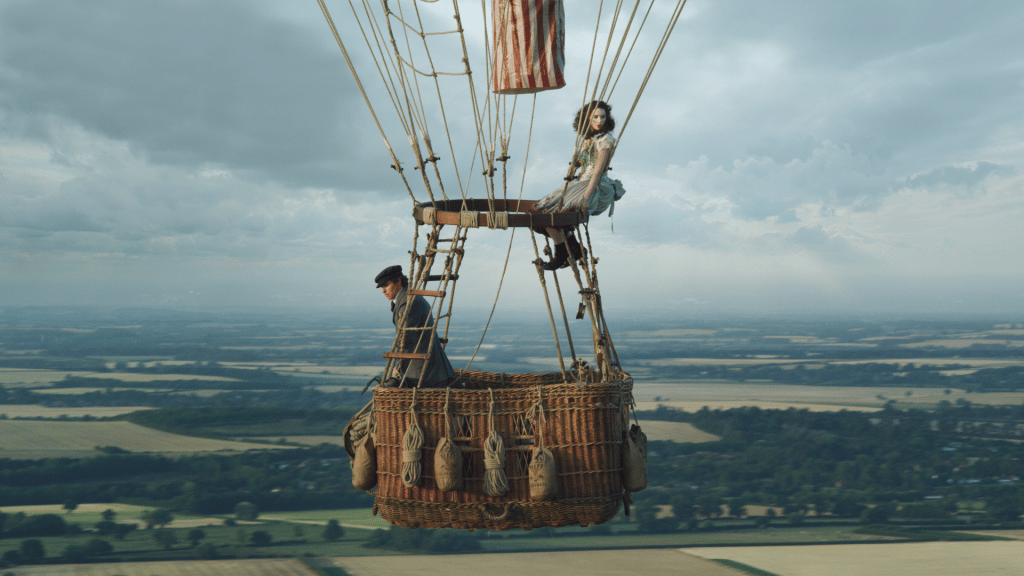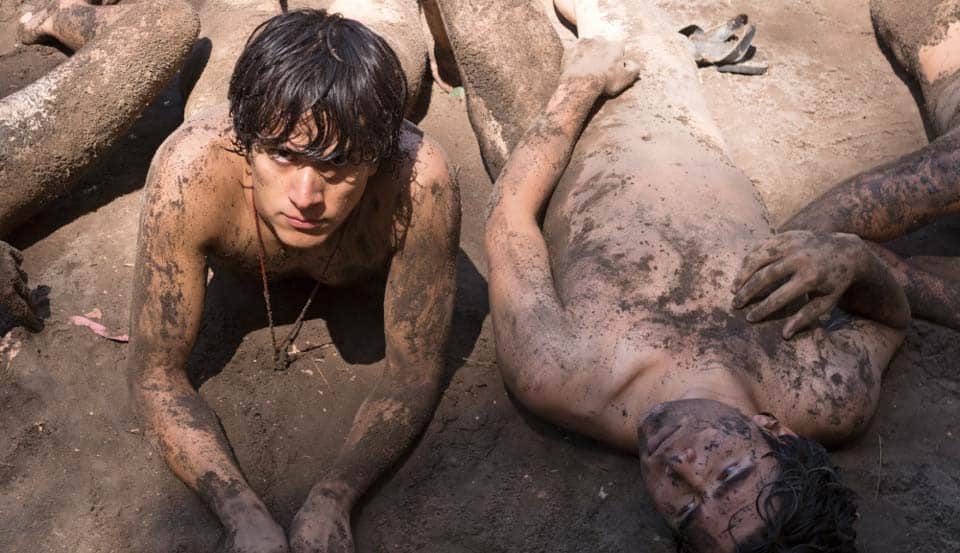Read also:
How to Watch FX Live Without CableHow To Watch AMC Without CableHow to Watch ABC Without CableHow to Watch Paramount Network Without Cable(This dispatch is part of our coverage of the 2019 Chicago International Film Festival.)
Whew, it’s certainly been a weekend! Unlike our lovely Matt Cipolla, who’s been doing yeoman’s work with daily dispatches from CIFF, I haven’t been able to keep up as much with straightforward reviews. (I’ve got some interesting interviews coming out of the fest, though, so look forward to that!) Still, I’ve managed to drag my butt out to the AMC River East for some intriguing offerings, a few of which will likely garner some awards attention as the year rolls by.

First up is the clear Oscar contender of the bunch, Trey Edward Shults‘ Waves, a bracing slow burn of a family drama of the type Shults has excelled in since his off-kilter debut Krisha. Here, he follows a middle-class African-American family and the matrix of bad decisions that ripple through their lives and leave tremendous impact. At first, the film focuses on Tyler (Kelvin Harrison Jr., Luce), a high school wrestler struggling to perform and achieve amongst the pressures of the adults in his life, especially his father (a deceptively vulnerable Sterling K. Brown). “We are not afforded the luxury of being average,” he stresses to his son, one of the film’s only overt acknowledgments of the family’s race.
But that pressure speaks volumes, even when unspoken: people of color are placed under greater pressure to be excellent just to have a seat at the table. For Tyler, himself struggling with a potentially career-ending injury and a strained relationship with his girlfriend (Alexa Demie), those tensions will explore with remarkable force, culminating in remarkable tragedy with consequences Shults will spend the remaining hour of the film exploring, particularly through the lens of sister Emily (Taylor Russell, Lost in Space).
Like every other film this year (especially Lucy in the Sky), Waves plays cheekily with aspect ratios; here, though, it feels purposeful rather than arbitrary, starting at 16:9 and gradually closing in on Tyler as his world grows ever more claustrophobic, then opening back up as characters begin to rebuild their lives. Drew Daniels‘ cinematography vacillates between the epileptic noise of social pressures and bright, grainy naturalism during rare moments of peace.
Trent Reznor and Atticus Ross‘ ambient score is most deeply felt in the anxiety-inducing noise of its first hour, but finds instances of grace as the film goes on. There’s more to say about the performances (there’s not a false note in the cast), and whether or not its bold narrative shift in the second half totally works. But as a vehicle for capturing the malaise of youth, and the ways one simple mistake can reverberate throughout the lives of those around you, Waves is worth the conversation.

And now, for something a little weirder and a lot more emotionally distancing – Deerskin, the latest from Rubber director Quentin Dupieux. It’s aggressively weird in the way all Dupieux films are; it asks you to meet it more than halfway through its narrative, and you never quite know where it’s going with its caterwauling metacommentary. Still, there’s some oddball insight to be found in the tale of Georges (Jean Dujardin, frustratingly absent from the film scene since his Oscar win for The Artist), a pudgy, middle-aged divorcee who develops an unlikely affection for a suede deerskin jacket he purchases just outside the small town he’s decided to put down roots.
It’s maybe the ugliest jacket you’ve ever seen — too small for his frame, long fringe hanging down every inch of it — but he becomes fetishistically drawn to it. “Killer style!”, as he describes. And it’s not long before he decides he wants to be the only person wearing a jacket in the world, setting off on a quixotic crusade to film his deadly outerwear revolution, with the help of a bored bartender/editor (Adèle Haenel) inexplicably drawn to Georges’ murderous midlife crisis.
Dupieux’s own ‘killer style’ is as singular and exclusionary as Georges’ deerskin jacket; you either love it or you hate it, and the former group comprises people on a very particular wavelength. There’s a sinister kind of hucksterism at play during Deerskin‘s 77 minutes, the kind of playful avoidance of expectation Dupieux delights in. Watching it feels like you’re having a prank pulled on you, a dark joke at your expense. If you’re the kind of film viewer who can handle that kind of deliberate opacity, there’s some intriguing stuff on display here, particularly in Dujardin’s decidedly un-vain performance. In the meantime, just bask in the sheer weirdness, and don’t expect it to make a lick of sense.

And now for something a little more conventionally thrilling – Tom Harper‘s The Aeronauts, soon to come to Amazon Prime Video but clearly the kind of spectacle you need to see on the big screen. Based extremely loosely on the work of pioneering meteorologist James Glaisher, The Aeronauts follows a young Glaisher (played with Newt Scamander-y fussiness by Eddie Redmayne), who hires aeronaut Amelia Wren (Felicity Jones) to fly him in a hot-air balloon to record-breaking heights so he can make his revolutionary scientific measurements. Together, they battle storms, ice, and hypoxia, alongside more personal struggles of doubt, ambition, and societal expectation.
As stories go, The Aeronauts is as conventional and cliché-ridden as it gets — Jack Thorne‘s screenplay is chock full of creaky sentiments about the future of meteorology, while Amelia (a stand-in for real-life aeronaut Henry Coxwell, who really accompanied Glaisher on his journey) bristles against the lowered expectations of being a woman in Victorian society. But think of The Aeronauts like a steampunk Gravity, a high-flying survival tale whose simple, straightforward storytelling is a vehicle for incredibly tense green-screen visuals, and you’ve locked into the film’s appeal. To their credit, Jones and Redmayne have disarming chemistry together, Redmayne’s timidity bouncing well off Jones’ haughty theatricality. Its thematic oomph is as thin as the air in the upper atmosphere, but it’s well worth catching on a big theater amongst the whistles and cracks of its sound design, and the vertigo-inducing heights of its cinematography.

And finally, I revisit a film I saw at OUTshine, Sebastián Muñoz‘s The Prince, a queer prison drama as provocative in its explicitness as it is darkly empathetic towards its characters. In the opening minutes, we see Jaime (Juan Carlos Maldonado) has stabbed a man to death in a bar in 1970s Santiago, a crime which lands him in prison. There, he quickly learns of the queer power dynamics in the prison, lorded over by “The Stallion” (Alfredo Castro), a domineering prisoner who quickly makes him (for lack of a better term) his lover. From there, we see Jaime play a part in the shifting power dynamics of the prison, while flashbacks tell us exactly why he might have stabbed that man — his best friend — in the first place.
Muñoz’s film is certainly not for the weak of heart, and for those unaccustomed to seeing instances of explicit sex with charitably fuzzy understandings of consent. The topic of prison rape is one that’s taken far too lightly in our society, and yet The Prince paints the ecosystem of the prison (and the way men are passed around and ‘kept’ by others like The Stallion) in almost sadomasochistic detail. There’s plenty there about the sociopolitics of ’70s Chile, about the violent consequence of homophobia, but Muñoz’s treatment of this essentially posits prison life as some kind of unrestrained, judgment-free gay paradise. Maybe it is in some places, or was at that time. But for The Prince‘s two hours, it has little to say other than that. And that’s disappointing.